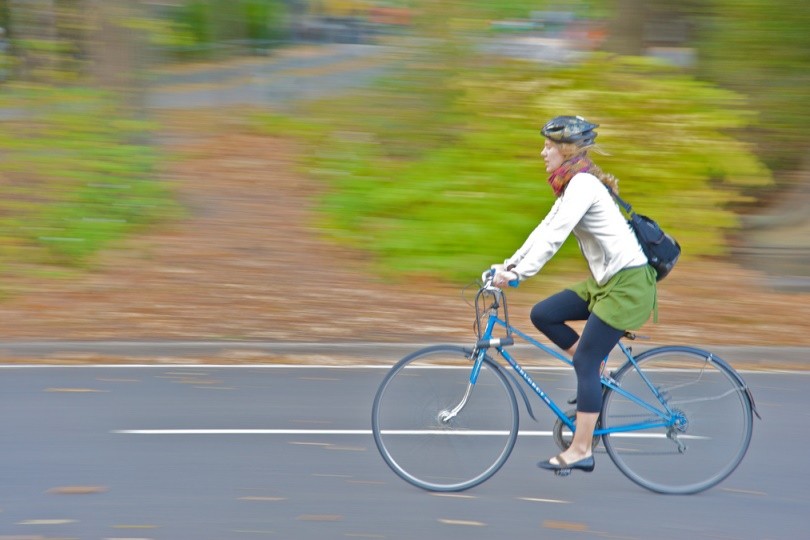Ever felt pressed for time or wished for seven more hours in your day? Or wondered where the day went by and what you got done? Time flies may be an old cliché, but it is a true one. So at the end of the day it comes to maximising your time. Not just your day; if there would be one word to transform your life, it would be time. Time can be planned, pooled, divided and saved. And no, you don’t need a caffeine spike or to work longer hours to do that. Once we learn how to use time wisely, we can capitalize on our productivity – emotionally, physically and monetarily. Here are some sure-fire ways to make the most of your time…
Plan right
Plan your day in advance – it is as simple as that. The short half-hour that you take out to plan your day ends up saving you more than a couple of hours. Early morning is the best time for decision making; later, we are prone to ‘decision-fatigue’ and are more likely to make easier or emotionally-charged decisions. You can even break this into two time-saving chunks – ideally, take fifteen minutes in the morning to set the agenda for the day, and fifteen to outline your goals for the next day. Write them down on a post-it or a diary for visual reminder. Get ready to surprise yourself by not just breezing through your tasks but also having some leisure time spilling over.
Prioritise practically
We have a tendency to do most of the things that come our way – and in turn lose out on the most rewarding stuff. It’s vital that you distinguish the most important tasks and projects, the ones that will give you the most long-term returns, and concentrate on those. Do the most important tasks in the hours after your breakfast – when you are well fuelled, physically rested and mentally on the ball. It is important to plan practically – remember that you are not a superhuman so pace out your tasks – for great energy management and also so you don’t get tired mentally. Research shows that most people read their emails before lunch, so sending your emails out at 11 a.m. is the best idea; this gets your mails to the top of the pile, and you are likely to get prompt replies.
Do things whole-heartedly
While multi-tasking is the norm, make sure you do it in a way that you do justice to everything you take on. To be much more productive, identify the time of day when you are at your apex, and remove all interruptions. For example, switch off your phone or route all calls to voice mail and avoid your e-mail inbox. When it comes to emails or documentation, don’t just read them and leave it at that –answer, file or delete – so you don’t have to come back to them. It is better to carry over one thing to the next day, rather than a bunch of half-done chores. The key to multi-tasking is to pair a mindful and a mindless chore together – for example, you can plug-in your wireless headset and make an important call while you water your plants. Above all, learn to say no to all inconsequential requests on your time by other people. Sometimes, setting limits or just saying no can make a world of difference.
Assign, allocate and appoint
All of the above essentially refer to delegation – the most important rule of time management. Instead to doing everything in your to-do list yourself, look for help – it is out there. Arrange a carpool to pick up your kid from school or classes instead of driving yourself. Think about how much your time is worth. It is definitely worth much more than hiring someone to clean your house, waiting in queues and doing pick-ups and drop-offs.
Work out to not lose out
Exercise is another arena where just half an hour can go a long way. In fact, a power workout first thing in the morning sets a bouncy tone for the day. People who exercise regularly report to be happier, calmer, and better equipped to handle whatever the day decides to throw at them. Exercising doesn’t always mean sweating it out at the gym. The best thing to do would be to kill two birds with one stone – maximize your time by combining tasks and physical activity, such as speed cleaning, planning a walking meeting, riding your bike to work.
Life-hacking tools
Research on time-savers and life-hacks and then personalise them as per your convenience. Bundle up your odd jobs so you can do them all together in a way that makes logistic sense. Make efficient use of your waiting time; for example, instead of whiling away while waiting at the doctor’s, you could answer emails, or read the book you’ve been dying to while waiting at the bank. When you’re cooking, make double batches of everything and freeze – to reduce your time in the kitchen by almost half.
Take a breather
While this may seem diametrically opposite to the idea of saving time, you need to recharge your batteries to be at the top of your game. To work at your best as an individual, you need to slow down and think. Sleep well at night and take cat naps during the day – a ten minute power-nap is often the best way to beat the post afternoon slump. Do one thing you love every day. And no matter how busy you are, take out time to play – whether it is enjoying a lazy weekend day, spending time with family and friends, catching up on movies, cooking a favourite meal from scratch or whatever makes you happy.
There are always invariable 24 hours and precisely 1140 minutes in each day. Each day is a blank slate and full of opportunities that we fill in our own ways. At the end of the day, it boils down to using our most valuable resource – time. Efficiently and effectively. So don’t waste any time, squeeze out more from every second and start getting the invaluable rewards from handling your days better.
Visual courtesy: https://www.flickr.com/photos/yourdon/







